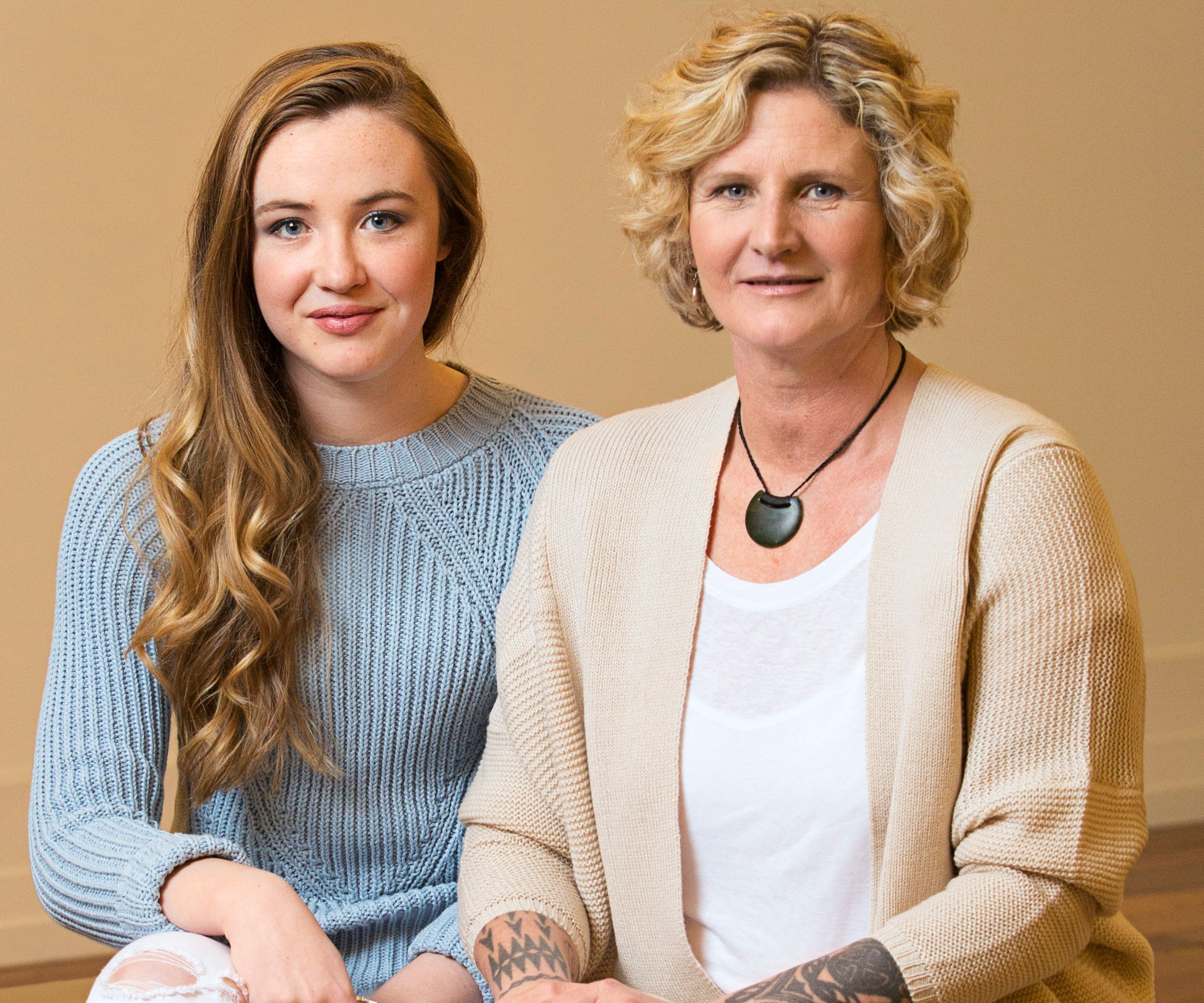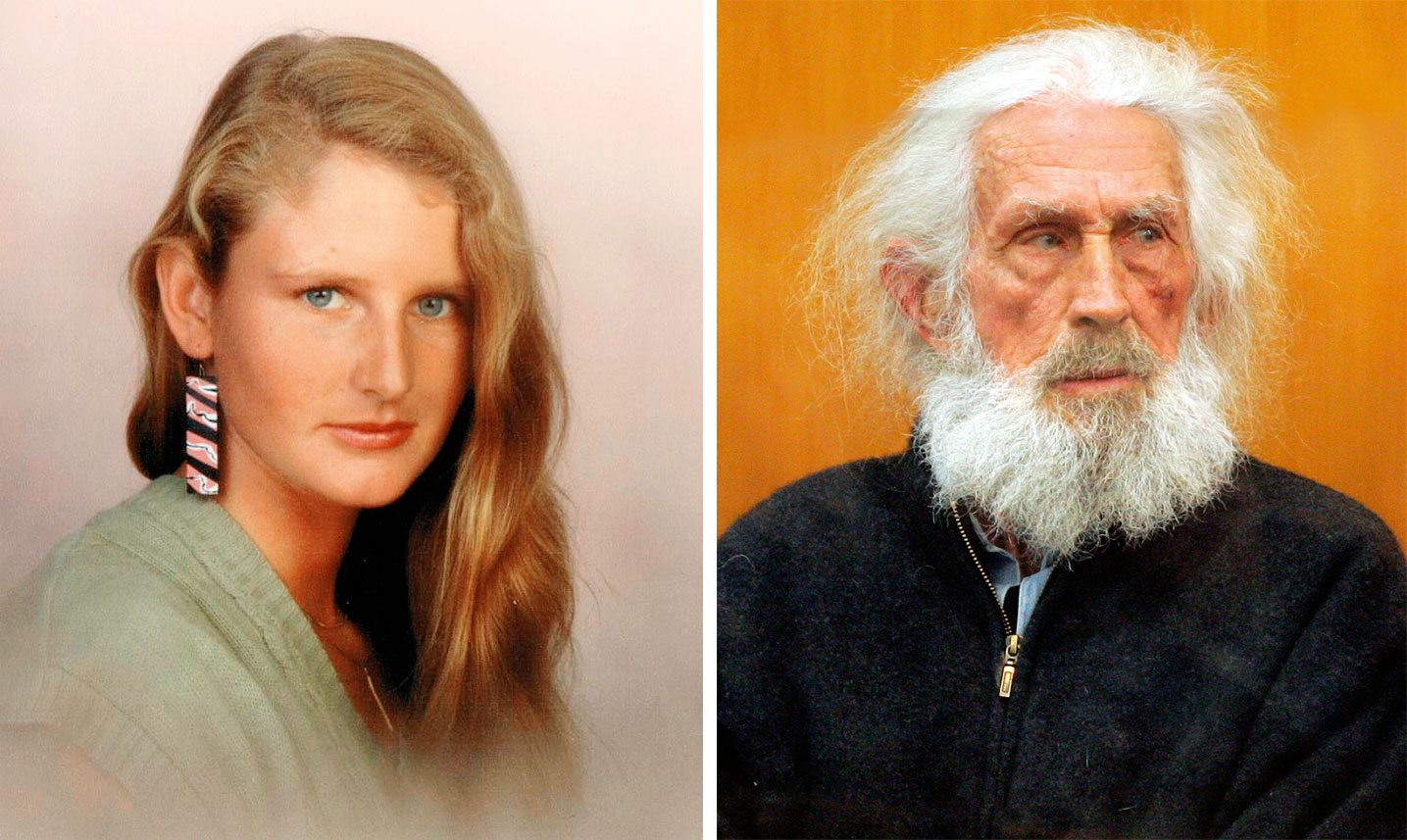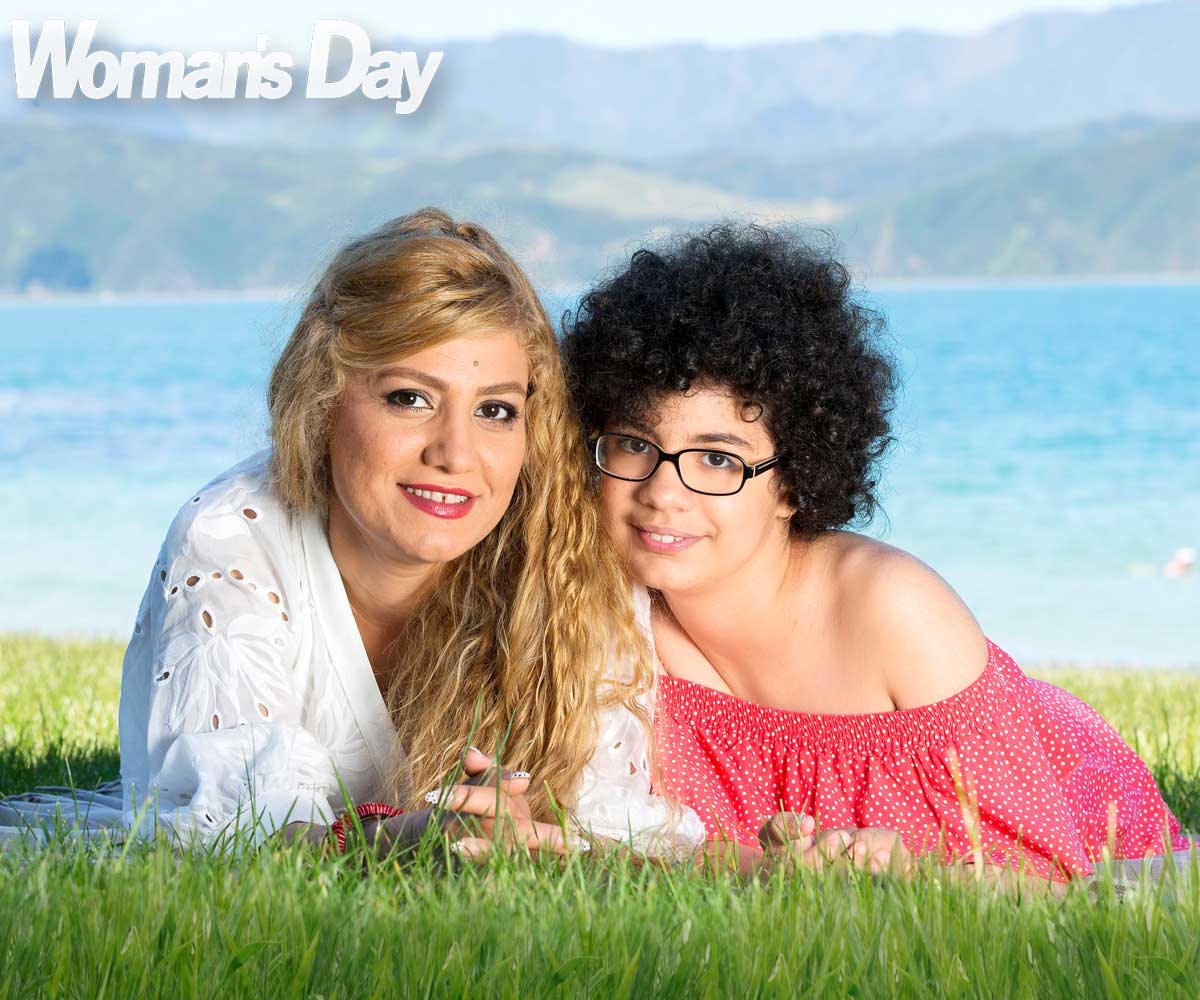Theirs is an unlikely friendship. Greta Gregory is a 22-year-old Auckland actress and Heather Walsh, a 49-year-old mother-of-six, who works as an advocate for survivors of sexual violence.
While Greta went to drama school and acts for a living, Heather acted her way through life for 23 years, hiding a deep, dark secret.
That secret was uncovered in June 2012, when Heather won the right to have her name suppression lifted. By doing so, she exposed William Cornelius, the man who kept a then 19-year-old Heather as a sex slave over the winter of 1985 on his remote farm in the Mangatiti Valley, near Raetihi.
Now Heather’s story of survival is among some of New Zealand’s most dramatic true stories being brought to life in a series of four one-off dramas on TVNZ’s Sunday Theatre.

Greta Gregory (L) and Heather Walsh.
In The Monster of Mangatiti, which screened on September 6 on TV One, audiences will see how Heather, played by Greta, was lured into a live-in tutor job on Cornelius’ farm, with no inkling of the living nightmare about to unfold.
After weeks of grooming by Cornelius, then 52, Heather consented to sex once, regretting it immediately and telling him it was a mistake. But the months that followed saw Heather endure endless threats, and horrific physical and psychological abuse, including rape, then pregnancy and miscarriage.
Narrated by Heather, the docu-drama is inter-cut with first-person interviews, detailing her attempts to escape, as well as her decision to take her attacker through the courts 23 years later.
The case, which uncovered more victims who faced horrific abuse at the hands of Cornelius, spanned four years and ended with him being let off the charges as he had mild dementia and was therefore deemed “unfit” to stand trial. He has since died.

A young Heather (left), who suffered at the hands of William Cornelius (right).
Time to speak up
Following her escape, Heather eventually married and raised a family, but she says the guilt, shame and fear she carried for so long became too much to bear. “What he did was wrong and I needed to do something about it, to break my silence and bring him to justice,” she tells.
When the trial finished in 2012, Heather was approached by director Philly de Lacey, who floated the idea of making the docu-drama for Screentime NZ.
“It was important to me that the story wasn’t over-dramatised and was truthful, so the fact that they wanted my involvement was great,” explains Heather, who has remained in touch with Philly over the past two years while they secured funding.
“I am actually really pleased it took this long to happen because it has given me time to process, to heal and to come a lot further along from what I’ve been through.”
While Heather still suffers from post-traumatic stress disorder, she’s making progress and her work helping other victims of sexual violence is hugely rewarding.
Actress Greta admits she had major concerns about playing Heather in the dark and dramatic re-enactment.
“I knew it was going to be tough, but from the first moment I read the brief, I realised it was such an important story to tell,” she says.
Greta spoke to Heather over the phone before shooting began and admits she was nervous about making a good impression on the woman she was about to play.
“She was so nice, though, and really only interested in making sure I was going to be OK. She was really pleased when I told her that I’d decided to move out of my flat and move back in with my parents during filming, just for that emotional stability and support.”
Heather admits she was also nervous. “I did worry. I wanted to make sure that whoever they picked could handle it and to make sure they had enough support,” she says.
But the pair needn’t have been concerned. Reuniting for our Woman’s Day photo shoot, Heather and Greta get on like a house on fire, with Greta having had a unique insight into what Heather endured all those years ago.
“You got off lightly,” Heather teases, having recently watched the final product. “You were a lot cleaner than I was, let me tell you!”
“That’s the thing,” Greta agrees, “what I went through filming was zero compared to what Heather went through, absolutely zero. But it did help me understand better what something like that would be like.”
Most of the filming took place over two weeks on a farm in Bethells Beach on the West Coast of Auckland and Heather visited the set a couple of times. Heather says it was odd watching the filming of some of the scenes, but not as disturbing as you’d expect.
“They did a great job at recreating the surroundings and characters, but to me, it wasn’t real. What you will see on screen is actually nothing compared to what I endured, which was a lot worse than what they can show on TV,” Heather points out.
“I know for me, before I spoke out, hearing of stories similar to mine was extremely beneficial. It made me feel less alone. So that’s my hope with this, that it will help other survivors and possibly prevent things like this happening in the first place.”

Greta (left) and Heather.

